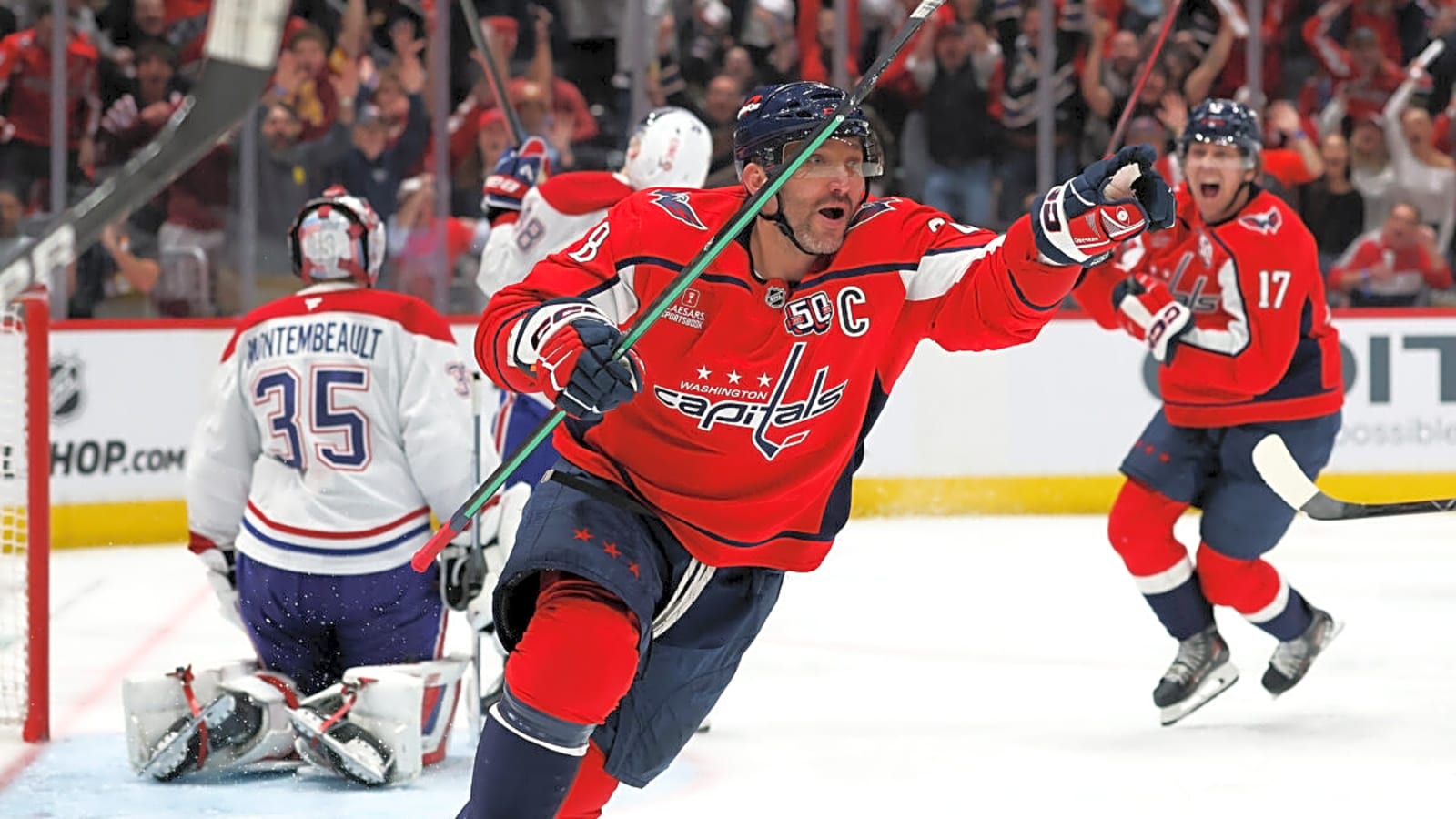
Game 1 of the playoff series between the Montreal Canadiens and Washington Capitals served as a wake-up call for a young Habs team that has defied expectations all season. Despite entering the playoffs as clear underdogs, there was genuine belief in the locker room that Montreal’s blend of youthful energy, opportunistic scoring, and goaltending could make this an even matchup. But after a 3-2 loss in overtime in Washington to open the series, one theme rang loud and clear: the Canadiens need to get more physical if they want to have any shot at pulling off the upset.
Key Numbers
From the opening faceoff, the Capitals imposed their will. They finished every check, stood up at the blue line, and made life miserable for Montreal’s smaller, faster players trying to generate offence off the rush. Washington out-hit the Canadiens 42-33 and won the majority of puck battles along the boards, especially in the defensive zone. It wasn’t just brute strength, it was playoff experience and tactical physicality, something the Habs struggled to match.
What stood out just as much as the physical play was the sheer will Washington brought to the ice. From the opening faceoff, the Capitals looked like the team that wanted it more. They were hungrier on loose pucks, more engaged in the dirty areas, and simply more determined across all three zones. One of the clearest indicators of that urgency was in the blocked shots department; Washington led 19-12, sacrificing their bodies to shut down Montreal’s shooting lanes and protect their net. Time and again, Caps players threw themselves in front of pucks during penalty kills and critical shifts, setting the tone for the kind of commitment needed to win in the postseason.
Lack of Physical Presence
One of the most glaring issues in Game 1 was Montreal’s lack of physical presence, especially considering the tone Washington set early on. With both Arber Xhekaj and Michael Pezzetta scratched, the Canadiens were missing two of their most reliable sources of grit and edge. Their absence was felt in the corners, along the boards, and in front of the net, all areas where Washington dominated. Without that muscle in the lineup, the Canadiens struggled to push back or shift momentum when things got chippy, allowing the Capitals to control the game’s physical tempo with little resistance.
Offensively, the burden of bringing physicality fell mostly on the shoulders of Brendan Gallagher, Josh Anderson, and Emil Heineman. Gallagher, as always, was relentless in front of the net, taking a beating to screen the goalie and battle for rebounds. Anderson used his speed and frame to drive wide and create chaos. Heineman, in his playoff debut, showed surprising bite on the forecheck, finishing checks and trying to spark energy. But overall, the Habs lacked the kind of sustained, collective physical effort needed to wear down a veteran playoff opponent like Washington. The three of them combined for 13 of the Canadiens’ 33 total hits.
What Needs to Change?
Heading into Game 2, the Canadiens need more than just lineup tweaks, they need a full-on attitude adjustment. The physical gap in Game 1 wasn’t just about size or personnel, it was about intent. It’s not about hitting just to hit; it’s about sending a message every time you’re on the ice. On the forecheck, finishing checks isn’t optional, it’s how you wear down a defence, create mistakes, and generate second-chance opportunities. Too often in the opener, Montreal let Washington’s defence off the hook by pulling up or gliding past puck carriers instead of making contact.
Whether or not Xhekaj is inserted into the lineup, this can’t be a one-player solution. The Canadiens need to develop a collective identity that’s defined by relentlessness. That means being hard on pucks, tough in front of both nets, and constantly in your opponent’s face. Teams that win in the playoffs don’t just play fast, they make life miserable for the other side shift after shift. Montreal has the energy and youth to do it, but they need to turn that into physical pressure. It’s not just about standing up for yourself, it’s about dictating the terms of the game. In the end, it is part of the learning process.
The good news? One loss doesn’t end a series. Montreal has bounced back from adversity all season. Whether it was a rough stretch in November, key injuries to Kirby Dach, or the late-season playoff push, this team has shown resilience. That needs to carry over into Game 2, but this time, with more sandpaper.
The nerves of a young team making its playoff debut were evident early on, but those jitters should be behind them now. Game 2 isn’t just another chance, it’s a must-win. Falling behind 2–0 in the series would put Montreal in a massive hole, especially heading back home against a seasoned Capitals squad. The Canadiens need to take the fire they found in that final period, combine it with a renewed physical edge, and turn Game 2 into a statement. The battle has started, now it’s time to hit back.
More must-reads:
- The 25 most unlikely Stanley Cup Final heroes
- All six teams have something to prove in Friday's Stanley Cup playoff action
- The 'Most 30-goal seasons in NHL history' quiz
Breaking News
Trending News
Customize Your Newsletter
 +
+
Get the latest news and rumors, customized to your favorite sports and teams. Emailed daily. Always free!








